#musllim
Explore tagged Tumblr posts
Photo
"Oh, Beloved Zahra Rashid, they would never make me stop loving you~ ✨✨✨"

I hope no one did this already lol
Zahra brainrot time 🥰🥰🥰
#glitch techs#glitch techs zahra#glitch techs zahra rashid#Zahra Rashid Dear Beloved~✨✨✨#ONE OF BEST GIRLS IN THE SHOW!! (FIGHT ME!!!)#Thank you for Zahra Rashid being the one making me interested watching Glitch Techs in the first place!! 🙏🙏🙏#(When I saw the Trailer for Glitch Techs S2 I've already interested because of the action & colors of the show.)#(Then saw Zahra and was like “WAIT THEY HAVE A MUSLIM CHARACTER ON THIS SHOW?!?! THEY CAN DO THAT?!?!?”)#(Even showed my aunt about it and was SHOCKED there was a Muslim character too-)#(So was my lecture when I was writing an essay (small section-) on Glitch Techs.)#(Don't know if that says ALOT about how little media and representation Musllims has on the western world- 😭😭)
124 notes
·
View notes
Text
“Pada setiap sedekah terhadap makhluk yang memiliki hati (jantung) yang basah (hidup) akan mendapatkan pahala kebaikan. Seorang musllim yang menanam tanaman atau tumbuh-tumbuhan yang kemudian dimakan oleh burung-burung, manusia, atau binatang, maka baginya sebagai sedekah.” (HR. Bukhari dan Muslim)
0 notes
Text
BASICS OF ISLAM : Morals and Manners : The Ethics of Decent Behavior in Islam (Adab al-Muasharat). Part3
Raghib al-Isfahani says,
“Taqwa is to keep one’s soul from sin; this is begun by avoiding that which is forbidden, and completed by avoiding that which is questionable. According to the hadith, ‘The permissible is clear, and the forbidden is clear, but there are questionable things in between.’”
Here we must briefly touch upon the subject of “small sins.” The aforementioned verse of Sura Najm does not mean that believers can be lax about “small sins.” Said ibn Jubayr reportedly said,
“When the following Qur’anic verse was revealed:
‘They give to the poor, orphans and slaves solely for God’s pleasure, even when they themselves are in need’ (Insan 76:8),
some Muslims thought that because they had given only a little they would not be rewarded; others thought, ‘God will reserve Hellfire for great sins,’ and they did not think that they would be punished for smaller sins, like lying, looking at forbidden things, or gossiping. For this reason, God sent down another verse,
‘And so, he who shall have done an atom’s weight of good, shall behold it; and he who shall have done an atom’s weight of evil, shall behold it’ (Zilzal 99:7–8).
Through these verses God taught Muslims that ‘A little will soon bring more,’ thus encouraging them to give without thinking that small offerings do not count; on the other hand, they were given the idea that ‘small sins soon increase and lead to greater sins,’ thus helping them to avoid all sins.”
According to Islamic teachings, a small sin can be as serious as a large one if the following errors occur:
Persistence in small sins.
Considering small sins lightly, attaching no importance to them.
Making oneself feel better about small sins by comparing them to bigger ones.
Boasting of one’s past sins in front of other people.
The commitment of small sins by a knowledgeable person who is acting as a guide for others; these must be counted as serious sins.
What should be kept in mind is that whatever God has forbidden should not be approached, refuge from both small and great sins should be sought in God, whatever is given as a sin in the Qur’an should be accepted as a sin, and if one commits a sin, it should not be persisted in. Indeed, Prophet Muhammad, peace and blessings be upon him, said,
“When we repent and regret a ‘great sin,’ it is no longer ‘great,’ but when we persist in a ‘small sin’ it does not remain ‘small.’”
To return to our main topic, let us examine the following hadith of the Prophet:
“A believer who has good morals may surpass one who spends nights in prayer and days in fasting.”
He also informed Abu Hurayra, in response to a question, that one may enter Heaven with fear of God and the possession of good morals.
More than once the Prophet said that a person of good morals will be rewarded with a home in the upper levels of Heaven; such a person will be the closest to the Prophets on the Day of Resurrection and he will be the most loved by them.
The sayings and personal actions of the Prophet regarding his guidelines for good adab and morals have been classified and collected into books like The Book of Adab and Bab al-Adab. In addition, Imam al-Bukhari compiled some deeds and sayings of the Prophet in his book Al-Adab al-Mufrad.
#allah#god#islam#musllim#quran#revert#convert#convert islam#revert islam#revert help#reverthelp#revert help team#help#islamhelp#converthelp#prayer#salah#muslimah#reminder#pray#dua#hijab#religion#mohammad#new muslim#new revert#new convert#how to convert to islam#convert to islam#welcome to islam
4 notes
·
View notes
Photo


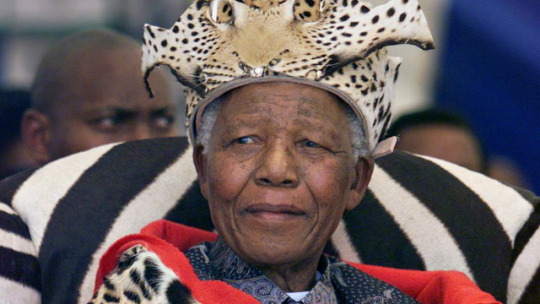
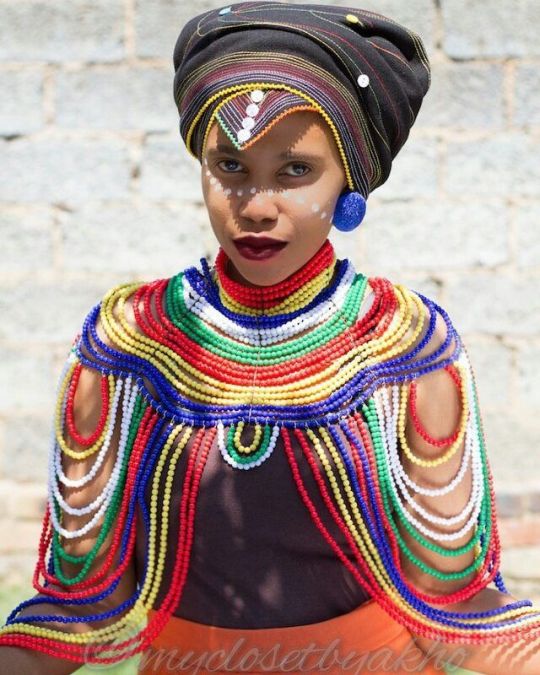


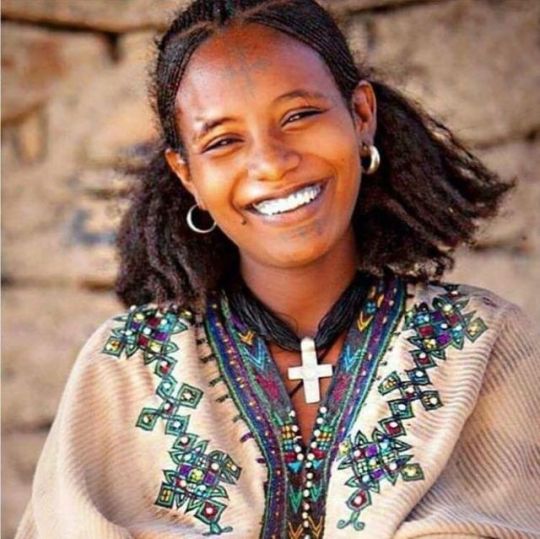
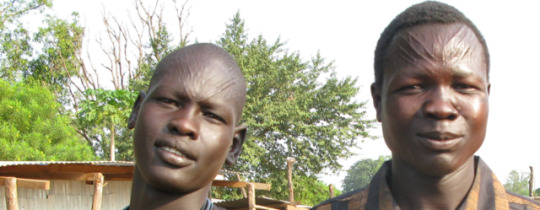
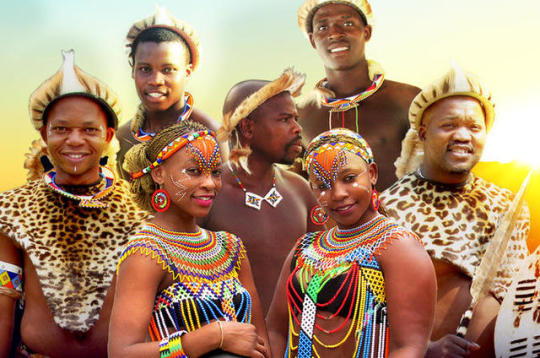
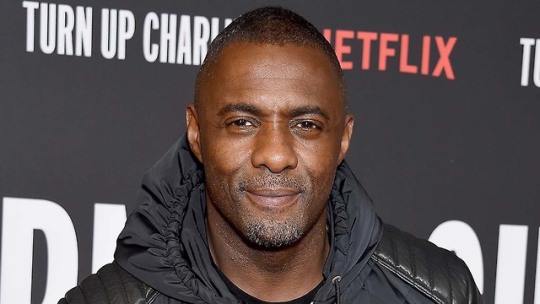
African not Black
Blackness Started in Slavery
We have to start this discussion in its most basic terms. Where do Black people originate from? Then if the answer is Africa, then what is the purpose of identifying with a color over our beautiful Motherland? We could end all discussions with just that simple sentence.
Black is a construction, which articulates a recent social-political reality of people of color (pigmented people). Black is not a racial family, an ethnic group or a super-ethnic group. Political blackness is thus not an identity but moreover a social-political consequence of a world which after colonialism and slavery existed in those color terms.
“white” depends for its stability on its negation, “black.” Neither exists without the other, and both come into being at the moment of imperial conquest– Fanon
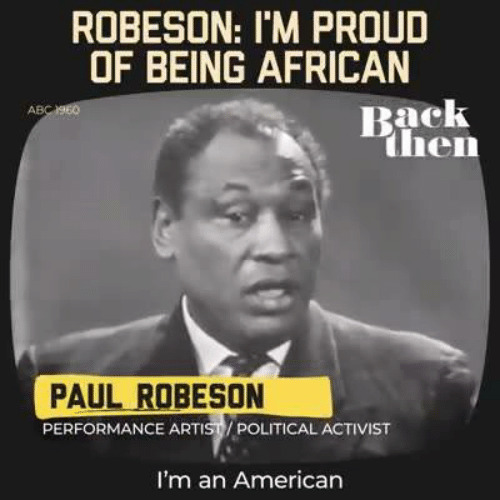
The Invention of the White Race is a groundbreaking analysis of the birth of racism in America. When the first Africans arrived in Virginia in 1619, there were no “white” people, nor, according to colonial records, would there be for another sixty years. In his seminal two-volume work, Theodore W. Allen details the creation of the “white race” by the ruling class as a method of social control in response to labor unrest precipitated by Bacon’s Rebellion. By distinguishing European Americans from African Americans within the laboring class, white privileges enforced the myth of the white race through the years and has been central to maintaining ruling-class domination over the entire working class.

In our modern era old identities split apart and reform along more self-determined line to recover what was lost after the impact of conquest and domination. We see The Gypsies are now to be called “Roma,” and the reindeer-herding Lapps of Northern Scandinavia are the “Saami.” Similarly, some now claim the Iroquois Indians should be called the “Haudenosaunee” and the Cherokee the “Tsalagi”
Africans have gone from Negro (Spanish for Black) to Black (English for Negro) what has changed? Only the language. An identity is generally geographical and ties the people to their native environment or their core doctrine (Jews of Judaism, Muslims of Islam, Chinese of China).

Very few Africans are actually Black in color, so where is the foundation of a Black people or black people coming from? It is how Africans were seen relative to the European people. So relative to the pales skin of Europeans and White Arabs the most dominant thing about African was relative skin color. Hence the exonym Black in the eyes of the “other.” It was not the land, not the African hair, but the relative color of a diverse skin pigment – that is rarely black in color. For Indians it is their land, for Chinese it is their land, for Jews it is their faith and a notion of Israel. Yet Condolezza Rice feels the best thing that describes her in American is blackness. And to some extent she is right, because there is nothing in her cultural, ethical, aesthetic, outlook that resembles the continent her ancestors came from. She has replaced Africa with America, and finally Africaness with dreams of the White ideal.

African and black are not interchangeable just as Dark continent and Africa are not. Self-determination allows a people to re-examine definitions and sculpt them to their reality. Black, like Negro is facing linguistic extinction, especially in academic circles, due to its poor foundation in speaking about the oldest and most diverse people on the planet. Notice today only two races go by color labels; The race with the most oppression and the ones inflicting that oppression. “I am black and proud” is a song, nothing else. It is the rhetoric necessary at the time to lift an oppressed people who only knew of themselves through the eyes of their oppressor. It has run its course and has expired.
Some have argued that African people chose “black” as an acceptable identity. The evidence is in all the books African-Americans write where the word “black” (lowercase) is used without care. But self-determination has a condition – full knowledge of self. And this is why we see the new Nig*er identity which by the same mass consensus process seems to be a valid new identity. And just like “black” it is again almost exclusively the world view of a minority African population living in America.
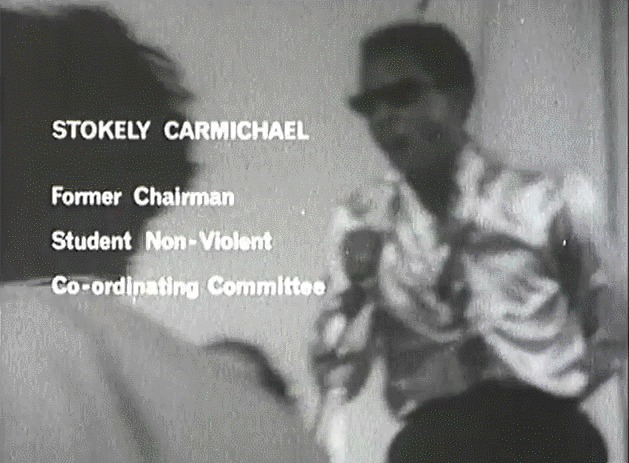
In Mauritania, the Haratin account for as much as 40% of the Mauritanian population. They are sometimes referred to as “Black Moors“, in contrast to Beidane. The Haratin are Arabic-speakers, and generally claim a Berber or Arab origin, which is contrasted against other African peoples in southern Mauritania (such as the Wolof and Fula people who have populations in Mauritania). The Haratine, consider themselves part of the Moorish community. But where it becomes problematic is because they are “darker” in color, they are assumed to be slaves brought from “black Africa.” So powerful is the theory of “two” Africa’s that reality is twisted to accommodate its validity. Every study is looking at Africa through the lens of “Black and White”, “slave and master.” It is therefore never considered that these “black” populations, like the Kanuri, who migrated South from North Africa, are native to the region. In a struggle to sustain colonial linguistics all forms of pseudo -anthropology is imposed on the African reality posing itself as mainstream studies.
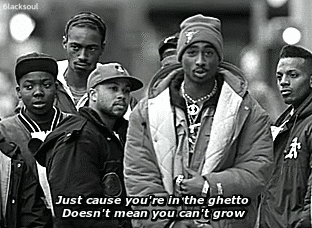
Ethiopia never had a history of “Black” identity
Brief History : During the displacement of the African Holocaust people were disconnected from culture, language and identity, they went from Fulani, Hausa, Igbo to a relative color, aptly describing their status in European society– Black. Now stuck with this name, and with no agency, no conscious of self outside of the chains of the Holocaust, being black became a source of reactionary pride. (especially in the 60’s). This happened also because the involuntary Diaspora had a deep self-hatred for their African connection, and would prefer to be a empty color than connected to their Motherland–that was the dept of the self hatred. And this produced reactionary love because they had to be something, and they could not be European, so in the psyche reaffirming a negative name was in some sense a statement of ownership–a statement of being. In reality it was a statement of displacement and self-hatred.
The word “Black” has no historical or cultural association, it was a name born when Africans were broken down in to transferable labor units and transported as chattel to the Americas. The re-labeling of the Mandika, Fulani, Igbo, Asante, into one bland color label- black, was part of the greater process of absolute removal of African identity; a color epithet that Europe believed to be the lowest color on Earth, thus reflecting the social designation of African people in European psyche. When Africans, out of their own agency refer to themselves they do so with internal paradigms and self-affirmation. No where in Africa did Africans see the obvious, the natural skin color they had, as the most distinctive characteristic in defining them:
Zulu – People of the sky Khoi Khoi – King of men Numunuu (Native Americans) – The people Mediterranean — ” Our Sea” Senegal – “Our land” Navajo -“Diné” meaning “The People” Han-in (Korean: 한인; Hanja: 韓人; literally “great people”) Bantu – “human” {note}
In this history of Swahili the people called themselves “people” no color attached. Attaching color is only done to refer to “the other.” In Zulu Kingdom again we see no record of a self-reference to a “Black people” they called themselves “People of the Sky” until White people showed up and called them blacks. It is true the term Ethiopia in ancient times meant “burnt face” but the modern name Ethiopia is a name not a Greek word. And the critical thing is name verses descriptive terms. The same is true for Sudan.

ODD ETHNIC GROUP Sesame Street use to play a game called Which one is the odd one out. Can you spot which of all of these so-called Ethnic names is the odd one out:
East Asian (a place) Southeast Asian (a place) South Asian (a place) Black (a color) Hispanic/Latino (a language group tied to a place) Caucasian (a place) Middle Eastern (a place) Native American/First Nations (a place) Pacific Islander (a place) Arab (a place)
Linguistic evolution? COLORED – NEGRO – BLACK – AFRICAN-AMERICAN – NIG*ER

BLACK HISTORY
Black history is the history of enslavement; African history is the history of humanity. If there are no White people, could there be Black people? For over 100,000 years there were only native people of Africa on the planet, and since there were no “White” people there could not have been Black people, since everyone would have been “Black.” This is even more profound when you realize African people are the only truly native people of the place they inhabit—everyone else is at some point a settler.
Every ethnic group in this country has a reference to some land base, some historical cultural base. African-Americans have hit that level of cultural maturity… To be called African-American has cultural integrity– Jesse Jackson
And if all the “White people” vanished from the Earth, would the remaining “Black” people still be Black? So the older group must define itself relative to the European newcomers? Would it not make far more logical, historically, linguistically, and social to describe people by their land of origin. Negro = Negroid = Colored = Nigger = Black (all associated with color none are connected to a continent). Now compare this to Asiatic, Caucasoid, and Mongoloid (all are tied to land, all can be located on a map— but not so Negroid/Black). Black and White are therefore debunked as regressive incomplete terms for describing people.

For all of recorded history we see in every conflict a central theme — that of “land.” So critical as humans need land to grow crops on, to source water from (see Golan Heights), they need a place to build cities and a place to harvest mineral wealth from. So attaching your identity to land makes sense: Attaching your identity to an abstract color, does not. Black and African are not interchangeable in any logical sense. African people claim an African origin and Africa as their Motherland. There is nothing in “blackness” that logically implies any claim to anything of value, except into bondage. All it tells the world is relative to the dominant race class these group of people are “black.” And in Africa it is even worse, because language wise no majority defines themselves against a minority. i.e. Sudan (Northern Sudan) is still Sudan, but Southern Sudan has to insert “South” for clarity. Holocaust, on its own, is assigned to the Jews, who do not insert “Jews” before Holocaust, since they are the first to use the term in its modern context. How can the majority in South Africa need to identify themselves as “black” relative to a “white” when they are a overwhelming majority and hence “the norm”?
And what is even more revealing is that Dutch settlers in South Africa branded themselves as Afrikaners laying claim to the land they conquered. Signifying in that naming process they were the native European tribe of of Africa (per Zuma). And yet Natives in South Africa still refer to themselves, with glee, as blacks.
It is amazing in our modern era that an entire nation of people, who are free to think and free to reflect– the oldest nation on the planet, the parents to every other people are confined by a name that reflects only their supposed skin color — and nothing else. Being “black people” is still today indelible fixed in Western lexicon (both African American and White), despite all the evidence contradictory such color-based terminologies and the profound work of Malcolm X and especially Richard B. Moore to favor African over Black, which would give a humanist representation of marginalized people. And the perplexing thing is general contentment and seeming inability to see the obvious menace in the term. Only two groups remain on Earth adhering to color labels; the most exploited people in the history of humanity (Black people), and their apex oppressors (White people).
True freedom is not only the right to vote, but the right to self-define and the right to interrogate definitions imposed and formulate new ones, which favor the African in any given political climate

If linguistically we reject the term.Sub-Saharan Africa then therefore there is no Sub-Saharan history or people; as distinct from North Africa. We then only have Africanpeople and a history of Africa

We must realize these are still colonial classifications like Middle East which have nothing to do with historical Africa. We cannot discuss a history of Africa in these colonial boxes which only served to humiliate and take away from the continent. The terms create paradigms which limit, rather than expand, reality. If there are a black or Black people then where do “black” people come form? Since Asians come from Asia, Indians from India (all makes perfect logically sense).
So where do Black people come from? Blackia, Negroland or Blackistan, following the obvious naming convention. What is the capital city of the Black home world? Black City or Blackatropolis? So if Africans do not come from these fictitious places and we find that so-called Black people come from Africa (at some time in our recent history) then why not just call them Africans? At best the term is redundant. So what is the purpose of Blackness? Especially in a world where identity and land are exclusively interlinked for every other people: Jews of Israeli, Palestinians of Palestine, Indians of India, Zulu of Zululand, Masai of the Masai Mara
Twenty-two million African-Americans – that’s what we are – Africans who are in America– Malcolm X
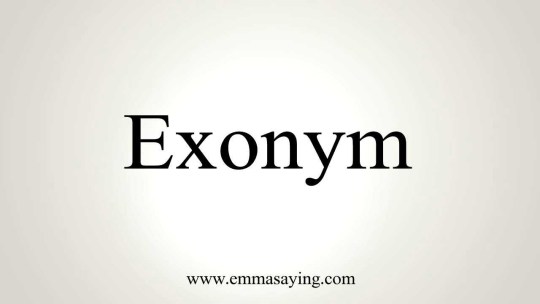
Blackness, is largely a Western or American exonym, in which all so-called Black cultures around the world are forced to fit into. As Americanism expanded so to did this notion of blackness, which is attached to the civil rights struggle and today to the urban cultures of the inner cities. However, It cannot be transplanted into ancient history to describe a people such as Ancient Ethiopia who had no cultural similarities to the modern African-Americans communities. Neither can “Blackness” be put in history to say the Ancient Egyptians were not Black because they did not share characteristics with a group of Africans Europeans chose to label as the archetypal Black population (black skin, thick lips and kinky hair). To do so creates connections and disconnections where there are none. So “Black culture” or “Blackness” cannot be imposed anywhere beyond the modern era. But we can say Cultures of Africa, in which Egypt and Ethiopia were part of that African world. Being African doesn’t mean we all dance to the same music and worship the same tree. So outside of the suggestiveness of “black” and “negro” words are necessary in creating new paradigms or we will always get stuck hearing “Well the Egyptians were not Black” because of a language issue or some other technicality. Far less objections could be raised if we just stuck to “The Egyptians were Africans“. Especially if we claim African as oppose to let it float.
The political question of contributions of modern day African people must be addressed and in this respect Ancient Egypt, Ancient Ethiopia were African civilizations, the same way Greece was an Ancient European civilization (it was located in modern Europe). But this argument is a political because we live in a racialized world which discredits a people’s worth by notions of racial origin and assumes black skin is too inferior to construct civilization.
There is an academic debate that the Ancient Egyptians called themselves Black based upon KMT (Kemet) which in some circles is translated as “Black people.” Now at the end of the word KMT is an ideogram which can only mean physical place
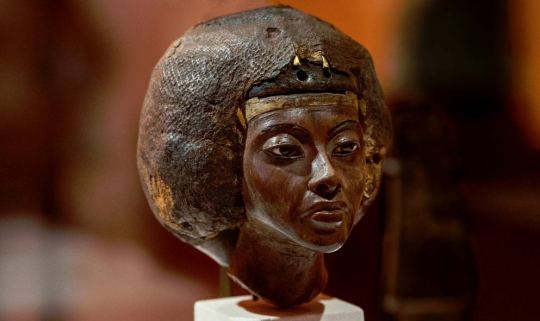
The ideogram indicates the context in which the word applies. An ideogram for humans would always be used to represent a word that applied to people. However Kemet can only mean Black Land since the ideogram indicates it is describing a built or non-human environment. They called themselves “remetch en Kemet”, which means the “People of the Black Land.” Where rmt means simple without any adjectives “the people,” the same way the Numunuu means “the people.”(the authentic people) And likewise Zulu means people of heaven.
Ancient Egypt is commonly referred to as ‘km.t’ , with the theorized reference to the black Nile Delta earth. The determinative O49 is used to designate the term for ‘country, inhabited/cultivated land’, called the niw.t (a political designate). It is a circle with a cross which represents a street, ‘town intersection”(Gardiner 2005 (1957): 498)
But none of this discredits the founders of Kemet as being African people, just like the Fulani or the Amhara. “Black” in the North American context. The “social “construction of race in America does not rely on skin color. “African Americans,” as even Asante notes, ” constitute the most heterogeneous group in the United States biologically, but perhaps one of the most homogeneous socially.”

BLACK AND THE 60’s
Indians are from India , Chinese from China . There is no country called Blackia or Blackistan and a people must respectful be tied to geography as skin color is not the primary definitive identifier.. Hence, the ancestry-nationality model is more respectful and accurate: African-American, African-British, African-Arabian, African-Brazilian, and African-Caribbean. And if Black people has some validity as a political term it can not be limited in its application to people of African decent. Nostalgia is not an accurate place for African linguistic self-determination, and blackness is blatantly a cultural inheritance of oppressed people. The pattern of acceptance of a black identity globally walks hand in hand with European cultural oppression.
Black pride is reactionary pride, necessary then, Irrelevant now. As we blossom into a greater historical and cultural awareness of a Motherland a detachment with fictional attachments to slave names must be challenged, and we must end the romance with things that are a disservice to our identity today.
It is worth noting parts of African that are culturally intact such as in Ethiopia, Mali, Somalia, Nigeria and Niger have absolutely no fondness or linguistic presence of a “black identity.”
New York Times | The term African-American has crept steadily into the nation’s vocabulary since 1988, when the Rev. Jesse Jackson held a news conference to urge Americans to use it to refer to blacks. ”It puts us in our proper historical context,” Mr. Jackson said then, adding in a recent interview that he still favored the term. ”Every ethnic group in this country has a reference to some land base, some historical cultural base. African-Americans have hit that level of cultural maturity.” Since 1989, the number of blacks using the term has steadily increased, polls show. In a survey that year conducted by ABC and The Washington Post, 66 percent said they preferred the term black, 22 preferred African-American, 10 percent liked both terms and 2 percent had no opinion. In 2000, the Census Bureau for the first time allowed respondents to check a box that carried the heading African-American next to the term black. In 2003, a poll by the same news organizations found that 48 percent of blacks preferred the term African-American, 35 percent favored black and 17 percent liked both terms.
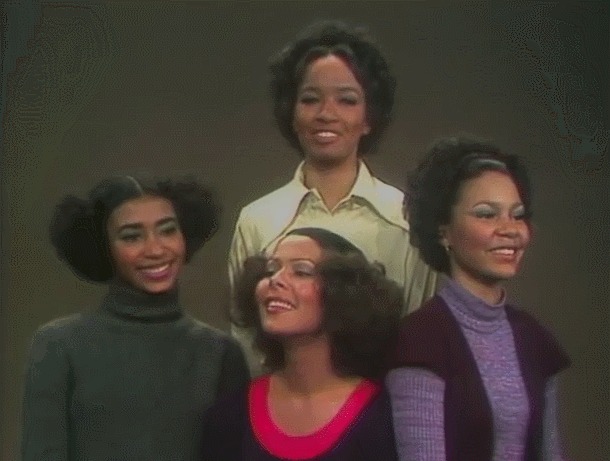
BLACK-AFRICA IS A RACIST TERM
Nobody on this planet puts a adjective on their identity, especially when they are a majority, except African people. Black Africa, Dark Continent, Heart of Darkness all articulate the colonial contempt for a continent and its people. But how does one arrive at the term “black Africans,” are there green Africans? Would you speak of “yellow Chinese,” or “brown Indians”? Even terms like “White Russian” are unused, despite Russia being a multi-ethnic nation. Because 80% white means the majority have no need for adding White to their Russian to qualify against a minority of “other” Russians. [3] Globally the term ” Red Indian” is rejected as deeply pejorative yet “black African” is still used even in South Africa which is used to define the majority of the population against the minority so-called white-Africans. Black African is as ridiculous as “rock stone”, rocks are stones so why double up two realities which are often the same?
There is an infinite an inexhaustible list of examples which show that no one with power wears and adjective on their identity, especially when equal or a majority. The peninsula of Korea is called Chosŏn Pando (조선반도; 朝鮮半島) in North Korea and Han Bando (한반도; 韓半島) in South Korea based on the respective names of the two countries. (wikipedia)They both use “Korea” as part of their official English names. In other words North Korea does not say they are North Korean, as far as they are concerned they are the KOREA. The South does not waste time defining itself as South Korea, again, as far as their national pride is concerned they are just Korea. Both countries have equal political and cultural agency. So how is it possible for a continent whose overwhelming demographic, political, cultural majority is African, need to refer to themselves as black + African? And with the split of N. Sudan and S. Sudan it would be shocking to see if N. Sudan adds the term “North” to its national rhetoric, to clarify itself from its new southern neighbor.
There is only one reason the term Black African exists and that is to deny nobility from African people. To explain away how Egypt could be nested in Africa but at the same time divorced from the majority of the African people. Therefore the argument “yes it is in Africa, but it is not Black African.” It is almost like saying Greece was a European civilization, but not a White European civilization.
If 95% of Africans are “Black” (capital B, if it must be used) then the minority should bear the adjective–not the majority. It is disrespectful to describe Africans with a label based solely on a color, especially when it does not accurately reflect the physical appearance of most Africans. This is made even more offensive when the etymological root of that label (black) is derived from the word Negro, and is used in place of the word African as a racial or cultural identity. In reality we must ask ourselves what is the difference between “Negro” and “Black” save historical association, the words mean the same thing, so we have moved from being Black in Spanish (negro) to Black in English (black). It is strange that despite all the genetic research and advance human anthropology we are still clinging to primitive 18th century post-Darwin model of race, which sole aim was/is to segregate and de-culturalize and enslave.
The concept of a “black Africa ” is a Eurocentric term based upon their ignorant primitive regressive deductions. It is true Arabs and Greeks referred to Africans as “black” but this was not a racial label, and moreover Africans themselves did not self-apply these external labels. Like the Phoenician who were called the “red people,” but no Phoenician would have referred to themselves in this way.
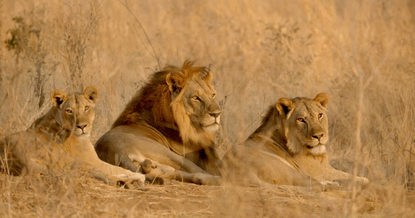
CHILDREN DIS-IDENTIFY WITH BLACK
In a recent survey conducted by the African Holocaust society it was noted that young African children (approx 4-5 years old, the age of race consciousness) when told they were members of the “black race” reacted with great confusion because they were also being taught the names of colors. Most of them objected to being called black and said they were not black but rather brown. A repeated survey found that when they were told they were African they did not object to the logic (they were African because their ancestors were from the continent called Africa). Blackness is illogical and only exist by force conditioning of children. This case study is profound because it shows how logic and identify form before social concepts are enforced.
WHITE AFRICANS
It would be very strange if a European, after 200 years in China or India, could be so powerful to alter the definition of Chinese just to be accommodated. Linguistic accommodation is only possible in Africa because of the prevailing injustice of a post-colonial dominance of European settlers. It is clear some European funded African politicians backed it, but where did it originate from? It is interesting to note Europeans (including white Arabs) constitute around 10 million people verses the 800 million plus Africans. Now this negligible minority by way of social influence has caused the majority to need to refer to themselves with the adjective of “black” to separate themselves from a serious minority group who want to be “white Africans.”Minorities of Europeans live in China, in India and in Arabia yet only in Africa has linguistic accommodation been given. Africans now must make room for those settlers who want to identify with the continent for capitalist reasons. Because once you identify with a continent then you have a legitimate claim to its resources. Thus the saying and the philosophy of Garvey “Africa for the Africans” becomes usurped. In South Africa the new trend of “Black Economic Empowerment” has seen the broadening, opening up of the borders of blackness so to speak. Indians are economically classified as ‘black’, and recently Chinese have been included in this definition. So again we see the relationship between linguistics and economic profit.In the scramble for linguistic real estate, why would these descendants of European colonialist who devastated and exploited the continent want to be called African? And in terms of self-determination who introduced these concepts?Despite claiming “African” in name they are very conscious of Whiteness when propagating the White dominant image on the broadcast mediums they control. Being White is clearly obvious when it comes to the dilemma of ownership which is still tipped in their favor. When all of these White South Africans rush home to Europe (when Africa gets a little sticky) do they encounter job discrimination experienced by fellow African South Africans or even 3rd and 4th generation African-British? They integrate seamlessly into the social environment created by White privilege. Seems like with the Indian “Africans”, African is a jacket worn to suit an economic or political opportunity.Race was not only defined in the 18th century, in Aksum and Kemet African peoples have always identified with degrees of racial inclusion and exclusion. The arrogance of Whiteness is to assume they are responsible for every single point of view that has ever existed on this planet. All the while South Africa remains White dominant and unchallenged by people who are the most vocal White Africans. Interestingly if you examine their lifestyle, you will find them to be the most racial conservative personalities. They date and marry women of their specific race, they socialize in White circles, they engage a distinctive non-African culture. And if they do have a few token “Black” friends they are often culturally compromised aberrations the continent can produce. The injustices of White dominance and the legacy of that dominance are smooth over by fictional fantasies of non-returning colonial tourist who still impose their reality as the norm for everyone else. Moreover, in dealing with these issues they always select broad base arguments and never deal with the core issue of African self-determination and agency.
Africa, unlike “black,” is a name, not a adjective. You can get on a plane and visit it, you can find it on a Sat Nav, it has boundaries, governments, you can grow crops on it, and build a house on it. But some say, Africa was a foreign name given to us, if this is true, it was given to us by our contemporaries not our conquerors. However, the word has Berber Tunisian origins meaning ” A sunny place” – Ifriqiya .Romans appropriated this word from which it is believed the modern word Africa came about the describe the entire continent. In addition, Africa is a unique name of a place and Africans are simply people who are native to that place. And over the course of history different names such as Habesha and Takruri were used to refer to African people of various regions, Ethiopia and West Africa respectively. Also the word Moor has been used across the centuries but as critics have established, the term “Moor” was used interchangeably with such other ambiguous terms such as “Ethiopian,” “Negro,” and even “Indian” to designate a figure from different parts or the whole of Africa (or beyond) who was either black or Muslim, neither, or both.
Massey, in 1881, stated that Africa is derived from the Egyptian af-rui-ka, meaning "to turn toward the opening of the Ka." The Ka is the energetic double of every person and the "opening of the Ka" refers to a womb or birthplace. Africa would be, for the Egyptians, "the birthplace.
Human skin color ranges in variety from the darkest brown to the lightest hues. An individual's skin pigmentation is the result of genetics, being the product of both of the individual's biological parents' genetic makeup, and exposure to sun. In evolution, skin pigmentation in human beings evolved by a process of natural selection primarily to regulate the amount of ultraviolet radiation penetrating the skin, controlling its biochemical effects https://en.wikipedia.org/wiki/Human_skin_color
“You can’t hate the roots of the tree without ending up hating the tree. You can’t hate your origin without ending up hating yourself. You can’t hate the land, your motherland, the place that you come from, and we can’t hate Africa without ending up hating ourselves - Malcolm X
While in Ghana, Dr. King Jr. told then U.S. Vice President, Richard Nixon, who was also in attendance at the event’s festivities: “I want you to come visit us down in Alabama where we are seeking the same kind of freedom the Gold Coast is celebrating”.Dr. King Jr. also returned from his trip deeply inspired about the Pan-African movement and penned a sermon called “Birth of a New Nation”. In it, he educated others, especially African Americans in the Civil Rights Movement, about Africa, then largely known as the “Dark Continent”. He highlighted various countries across the continent, including Egypt, Ethiopia, South Africa, Uganda, Nigeria, Liberia, Kenya, and Ghana and their plight. He used Ghana’s story to remind his brethren of the cost of freedom:“Ghana reminds us that freedom never comes on a silver platter. It’s never easy…Ghana reminds us of that. You better get ready to go to prison. When I looked out and saw the prime minister there with his prison cap on that night, that reminded me of that fact, that freedom never comes easy. It comes through hard labor and it comes through toil. It comes through hours of despair and disappointment.”2. In previously unreleased documents, it was discovered that Dr. King Jr. traveled to West Africa in 1960, this time, to attend the Inauguration of Nigeria’s Nnamdi Azikiwe in Lagos. He said the following about his trip to Nigeria:“I just returned from Africa a little more than a month ago and I had the opportunity to talk to most of the major leaders of the new independent countries of Africa and also leaders of countries that are moving toward independence. They are familiar with it and they are saying in no uncertain terms that racism and colonialism must go for they see the two are as based on the same principle, a sort of contempt for life, and a contempt for human personality.”
#african#alik shahadah#africanholocaust#black or african#black#black people#black pride#pride#egyptianart#egyptian mythology#kemet#africa#martin luther king#malcolm x#self pride#african pride#khepri#khepri neteru#musllim#habesha#ethiopian#trending topics#trending news
1K notes
·
View notes
Photo

Meet the Artist by Nayyirah-Bint-Aiyla
2 notes
·
View notes
Photo

U.S. Representative Ilhan Omar, one of the first Muslim women elected to Congress and no stranger to criticism from across the aisle, faces a challenge from fellow Democrats hoping to unseat her in a primary election on Tuesday. "Her progressive politics is a platform of platitudes," said Antone Melton-Meaux, a Black lawyer who is one of four candidates challenging Omar in her Minneapolis-based district. A refugee from Somalia, Omar, 37, quickly became a national figure when she was elected in 2018.
In videos released in June by Politico, Greene suggested that Omar's election in 2018 was part of “an Islamic invasion of our government.”
The videos included derogatory comments about Blacks and Jews, and Republican leaders denounced Greene after they surfaced.
0 notes
Photo

NO FACEBOOK
You can’t wait to Facebook / Instagram share the pictures of your graduation, engagement, marriage or pregnancy announcement? Before you “share” your good news, consider this:
You know that feeling when something amazing happens to you and you cant wait to share it with the world? Learn to wait. Here’s why:
1. When any good news came to the Prophet (salAllahu alayhi wa salam) or if a calamity had been averted, he would immediately fall in prostration (sajdatul shukr) and thank Allah for it. This is a beautiful sunnah that should be practiced all the time and not just for major occasions like graduations, new homes, etc.
2. Take a few moments to really deeply say al hamdulila from the depths of your heart. That will be a form of maintaining that blessing as Allah will see your sincere gratitude.
3. Some of the scholars say that one of the reasons Allah did not allow Zakariyya (alayhis salam) to speak for 3 days except for words of praise was to bestow a greater appreciation of the blessing upon him. Al Baghawi (ra) said that is because sometimes when you speak about your blessings to others immediately, you lose yourself in your excitement.
So from now on when something good happens to you, hold off on the phone call, text, email, or status. Say takbeer, go into prostration, say subhana rabbi al a’ala the way you do in your prostration in prayer, AND add a personal note of dua and thanks to Allah from the depths of your heart before you rise.
1 note
·
View note
Photo

Printed Crepe Abaya
Check here : https://bit.ly/2MKW9Z6
#muslimstyle #clothing #picofday #summercollection #mybinsta #sisterhood #modestfashion #womenclothing #ootd #yaz #islamicclothing #womendress #dress #muslimwear #instafashion
0 notes
Quote
The best of men is the person who is most beneficial to others.
Abdul Qadir Jilani (rahimahullah)
#allah#god#islam#muslim#revert#reverthelp#reverthelp team#convert#new revert#new convert#new musllim#muslim revert#muslim convert#welcome to islam#revert to islam#convert to islam#how to convert to islam#prophet#muhammad#quran#sunnah#hadith#Dua#prayer#pray#salah#religion#help#muslimah#hijab
18 notes
·
View notes
Text
The Muslim writers and poets too were affected by this trend to varying degrees. Prominent writers like Ilankeeran, H. M. P. Mohideen and Abudalib Abdul Latheef who started writing in the 1950s had close associations with the island’s communist parties, as editors of their Tamil journals. When the communist movement ideologically broke into two camps in the mid ’60s, Ilankeeran and Mohideen aligned themselves with the Maoist wing while Latheef remained with the Moscowwing. All had affiliations with the Progressive Writers’ Association. Most of the Muslim writers and poets of the younger generation also reflected this trend. Maruthoor Koththan, Maruthoor Gani, and several others from the East had sympathies with Maoist ideology and wrote poems and short stories on the theme of class contradiction and social change. I too wrote poetry and other works of this nature during this period. A. Iqbal, Fazeel Kariyapper and S. L. M. Haneefa from the same region, M.H.M. Shams and Dikwallai Kamal from the South, M.L.M. Mansoor and Pannamathu Kavirayar from the Central Province wrote poems or short stories on social themes under the influence of socialist ideology. Dr. Badiuddin Mahmud, a prominent Muslim political leader and one of the founding members of the Sri Lanka Freedom Party (SLFP), who hailed from the South and who was left leaning, organized a new political party, the Islamic Socialist Front, putting forward the new concept of Islamic Socialism in the early 1970s to draw the attention of the younger generation of the Muslim left in order to get their support for the SLFP. His party also published a Tamil weekly Insaan and most of the writers of the younger generation contributed to it. Many of these poets and writers tried to maintain a Muslim identity with left political ideology, not strictly Marxist, although a few of them identified themselves as secular writers leaning towards Marxism. This trend of active participation of the Muslim left in politics and literature almost came to an end when Muslim identity politics reached a peak in the 1980s because of two distinct political developments, namely, the emergence of separatist politics with the Tamil militant movements in the North and East, and the emergence in West Asia of Islamism as a global political force contesting Western imperial power and domination. The Sri Lankan Muslim left had to choose either to involve itself in Muslim ethnic politics or to remain silent.
— Ethnic Conflict And Literary Perception: Tamil Poetry In Post-Colonial Sri Lanka
#eelam#sri lanka#tamil literature#sri lanka freedom party#islamic socialist front#maoist literature#proletariat literature#tamil muslim#sri lankan muslim#eelam musllim#sri lankan muslim literature#eelam muslim literature#eelam literature
0 notes
Text
5 Major Events Leading to the Formation of the Muslim League
5 Major Events Leading to the Formation of the Muslim League
Formation of the Muslim League The success of the Muslim deputation motivated the Muslims to set up their own separate organization. Nawab Salimullah of Dacca took the initiative when eminent Muslim personalities assembled at Dacca in 1906. The proposal to form a separate political organization for Muslims was accepted and an ‘All India Muslim League’ was established on 30 December 1906 under…
View On WordPress
#Events Leading to the Formation of the League#events responsible for the formation of the muslim league#Formation of the Muslim League#the muslim league#the muslime league formation#who was the president of the musllim league
0 notes
Photo

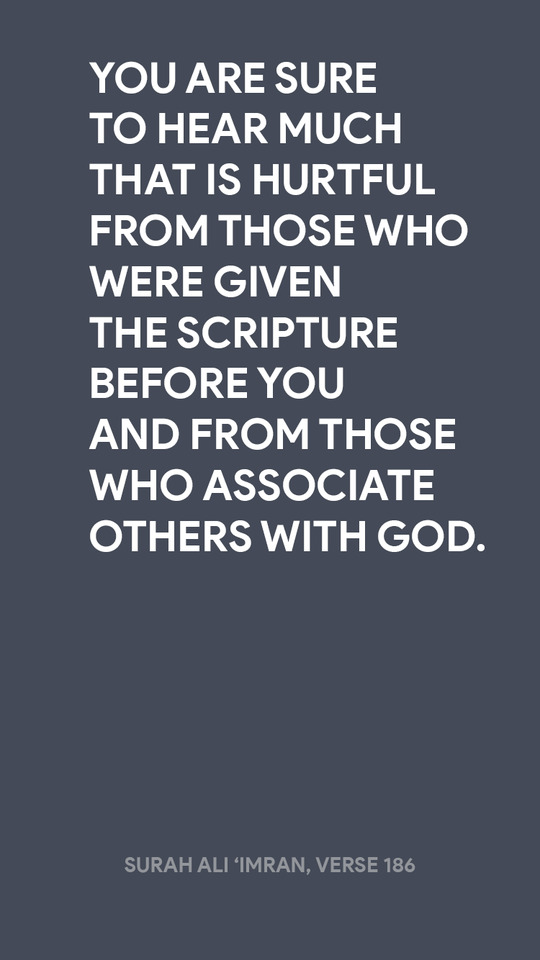
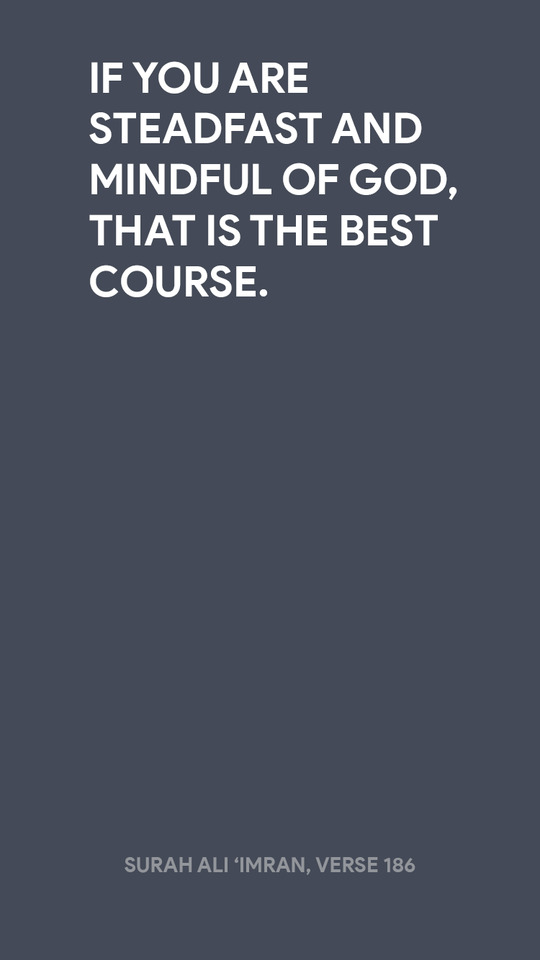
#islam#muslim#islamic#AwkwardMuslim#Quran#quran ayah#quran recitation#islamic poster#islamic art#islamic quote#islamic quotes#musllims#God#Allah
532 notes
·
View notes
Quote
The best of deeds on LaylatulQadr and the last ten nights is Salaah, Quran and dua. The best of states is to combine the three by prolonging the qiyam (voluntary night-prayer) with Qur’an and prolonging the sujud with duʿa.
Sheikh Abdel Aziz At-Tarefe
47 notes
·
View notes
Text
musllim men getting caught up in the culture war is sooo funny to me. why are you mad about vegan food options? you can have a greggs sausage roll now.
4 notes
·
View notes
Note
How is the amount paid for fidyah decided on, and can it be money or does it have to be food? How does fidyah differ from kaffara?
You can pay Fidyah by giving a person who is poor 750 gram of wheat, barely or bread.
Kaffarah (atonement) is to be paid by a Musllim who broke the fast deliberately (without a cause). This means the individual could have kept the fast, but decided to break the it before sunset. A person who was capable of fasting but decided not to partake in it is culpable and has to pay the Kaffarah. Kaffarah can paid through two means:
Fasting for sixty consecutive days + making up the day you didn’t fast
a. Feed/clothe sixty people who are poor. (750 gram x 60);
b. Pay a compensatory fee (to feed/clothe 60 people), which should amount to $200.
Yes, this for ONE day.
63 notes
·
View notes
Text
Menjadi Manusia yang berani dibenci orang lain.
Perasaan gak tenang karena dibenci orang itu manusiawi, kalau dalam bahasa syaksiyah Islamiyyah, udah part of naluri mempertahankan diri, manusia hidup ada eksistensi yang mereka kejar namanya mengejar eksistensi tentu ada pengakuan didalamnya, kita butuh diakui toh? dibenci orang? ya bisa mengganggu eksistensi dong.
Dulu saat saya masih aktif askfm, banyak banget kalimat-kalimat kebencian yang masuk ke question box saya, kadang saya baca kadang saya hapus tanpa menjawabnya, enak gak enak sih baca komentar orang itu mulai dari yang lemah lembut sampe ke yang kasar.
Dari sanalah saya belajar bodo amat dengan komentar orang tentang apapun yang saya posting, selama gak ngelanggar syariat, gas aja.
Beberapa selebgram idola para remaja yang juga perusak moral anak bangsa gak ada malu-malunya menunjukkan kehidupan yang sesat dan kekufuran pada Allah, kenapa kita yang mau taat malah ketakutan dengan komentar orang?
Whatever we do kalau ada orang yang ngebenci diri kita, ya kita tetap bakal dibenci terlepas apapun yang kita lakuin.
Beda ketika yang dibenci adalah perilaku kita, maka kalau kita berubah sesuai dengan seleranya, orang itu tidak akan membenci tapi malah suka.
Ini sudah paling wajar dan manusiawi, kalo ada selebgram yang suka seksi-seksi pake bikini hijrah taubat semua foto seksinya dihapus, pasti bakal disuka sama yang dulu membencinya karena kemaksiatannya.
Jadi? dibenci/enggak itu tergantung Value hidup yang kita tampilkan ke orang lain, orang yang se Value sama kita gak akan membenci kita, kalau yang beda value? udah bisa dipastikan bakal ngebenci/gak suka.
Bicara soal kebencian, apakah itu perbuatan yang gak boleh ada didalam kehidupan ini? apa jadinya sih hidup ini kalo gak ada kebencian? kayaknya gak bakal seru deh, kurang menarik ;-p.
Karena kebencian & cinta itu masuk dalam ujian kehidupan kita, bener gak? orang kalau udah cinta apapun bisa dia lakuin, begitupun dengan benci.
Makanya dalam Islam cinta & benci ada pembahasannya, dibahas detail, rinci bersama kasus-kasusnya, kenapa? agar kita tetap bisa bersikap ADIL dan tidak saling mendzalimi.
bahkan nih kalo temen-temen rajin baca Sirah Nabawiyyah, analisis dengan baik deh bagaimana Perilaku Rasul saat berhadapaan dengan orang yang membenci beliau serta orang yang beliau cintai & benci.
Lho rasulullah membenci orang? iya ada kan penjelasannya, bahkan itu jadi syariat untuk kita, yaitu membenci perilaku orang-orang yang membenci rasulullah & Allah, serta membenci apa yang Allah & Rasul-Nya benci.
Ada kisah yang selalu saya ingat, soal bagaimana perilaku rasulullah dihadapan orang yang membenci rasul, rasul dilempari maaf tai sama Abu Lahab, terus rasul ngapain? gak ngapa-ngapain diem aja, lalu pergi ngebersihin baju beliau dirumah anak beliau Fatimah Az-Zahra Radhiyallahu anha.
Itu perilaku rasulullah dihadapan orang yang membenci beliau. Bayangin dengan kita? dilemparin maaf tai pas lagi asik asik jalan, emosi banget pasti kan? saya aja kalo diomelin pagi-pagi cuma karena lupa matiin air itu emosi banget, apalagi dilempari maaf 'tai'. Bedain dengan sikap rasulullah pada orang-orang yahudi yang melanggar perjanjian. Sanksi Tegas.
Memang sih gak bakal ada yang kayak rasulullah, karena akhlak rasulullah itu Al-Qur'an, tapi Allah tetep merintahin kita untuk mencontoh rasulullah, Allah pasti udah tau kita gak bakal pernah bisa sama dengan rasulullah.
Tapi setidaknya kalau diibaratin lomba lari, rasulullah diurutan pertama nah kita-kita ini apakah bisa punya perbedaan jarak 10 cm, 1 m, 20m, 30 m, tentunya paling bagus jangan sampai terlalu jauh dari urutan pertama toh? nah begitulah kita berusah mengejar kesempurnaan Akhlak rasul.
Lah rasulullah tidak takut kok jadi orang yang dibenci orang lain? kenapa? karena Misi yang rasul emban, yaitu Islam. Seandainya dulu rasulullah takut dibenci karena membawa Islam, kira-kira apakah Islam akan berkembang sampai ke diri kita? enggak.
Nah sekarang pertanyaanya adalah kita, apa yang kita emban? karena setiap manusia pasti punya haters, misal kamu gak suka manusia-manusia yang suka mengkampanyekan pemikiran kufur nan sesat sejenis feminisme, liberalisme, pluralisme, komunisme, apalagi yang suka ngutak ngatik syariat Islam sesuai jidadnya, asli saya juga benci banget manusia demikian dan ooh tentu saja kamu akan dibenci orang-orang yang mengemban pemikiran itu.
Kalau kita lihat seorang selebgram yang selalu kampanye 'love yourself don't give a f''' to others people, let them hate you blabla' disitu kita bisa mikir nih tukang endorse kemaksiatan aja gak takut dibenci, kenapa kalian yang mengendorse ketaatan takut dibenci orang?
Ayolah come on, dikatain sok suci dkk? bodo amat, yang maksiat aja bodo amat. dikatain riya gegara posting di kajian? bodo amat, yang suka dugem aja rajin posting, dikatain ini itu gegara dakwahin jangan dekati zina? bodo amat, yang dadanya dicubit dan minta dikencengin cubitannya aja masih eksis :-p, kenapa situ yang mau taat malah ketakutan dengan hujatan orang?
Be brave, selow, santuy, dan keep calm macem ustad Zainullah Musllim pas di geruduk ban serep.
191 notes
·
View notes